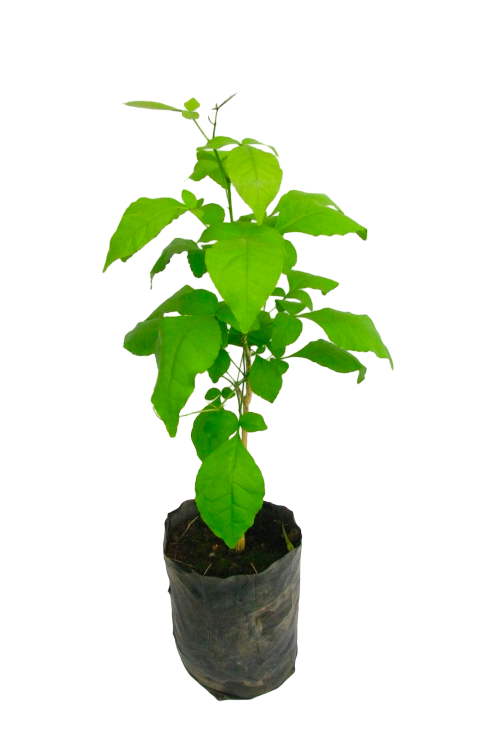agriyumfood
Bael
Bael
Regular price
Rs. 199.00
Regular price
Sale price
Rs. 199.00
Unit price
per
Tax included.
Shipping calculated at checkout.
Couldn't load pickup availability
Health Benefits of Bael
Bael is revered in Ayurveda and modern herbal medicine for its therapeutic properties:
- Digestive Aid: Rich in tannins and fiber, bael helps treat diarrhea, dysentery, and constipation. Its pulp acts as a natural laxative.
- Blood Sugar Control: Bael leaf extract may help regulate insulin secretion and lower blood glucose levels—beneficial for diabetes management.
- Anti-inflammatory & Antioxidant: Contains flavonoids and phenolic compounds that reduce inflammation and oxidative stress.
- Heart Health: High potassium content supports blood pressure regulation and cardiovascular function.
- Liver Support: Bael helps detoxify the liver and may aid in recovery from jaundice.
- Respiratory Relief: Used to treat asthma, bronchitis, and cough due to its expectorant properties.
- Skin & Hair: Bael oil and leaf paste are used to treat acne, eczema, and dandruff.
- Immunity Boost: Rich in vitamin C and antimicrobial compounds, bael strengthens the immune system.
Cultural Practices & Significance
Bael is not just a tree—it’s a symbol of purity, devotion, and healing in Indian tradition:
Religious Importance
- Sacred to Lord Shiva: Bael leaves are offered during worship, especially on Shivratri. A trifoliate leaf symbolizes Shiva’s trident and the Trimurti (Brahma, Vishnu, Shiva).
- Temple Planting: Often grown near temples and considered spiritually purifying.
- Mythological Beliefs: Touching bael leaves is believed to absolve sins and bring prosperity.
Cultivation Practices
- Soil & Climate: Thrives in sandy, alkaline, or stony soils with pH 5–10. Tolerates drought and extreme temperatures.
- Propagation: Traditionally grown from seeds; germination takes 10–25 days. Organic compost and neem cake are used for healthy growth.
- Pruning & Watering: Minimal pruning after fruiting; watering is essential during dry seasons.
- Harvesting: Fruits ripen in summer and are used fresh or dried for sherbets, jams, and Ayurvedic formulations.
Culinary & Folk Use
- Bael Sherbet: A popular summer drink in Odisha and Bengal, made from ripe pulp, jaggery, and spices.
- Traditional Remedies: Used in Ayurveda, Siddha, and Unani systems for centuries to treat digestive and respiratory ailments.
- Environmental Role: Bael trees emit high oxygen and absorb toxins, making them “climate purifiers”.
Bael is revered in Ayurveda and modern herbal medicine for its therapeutic properties:
- Digestive Aid: Rich in tannins and fiber, bael helps treat diarrhea, dysentery, and constipation. Its pulp acts as a natural laxative.
- Blood Sugar Control: Bael leaf extract may help regulate insulin secretion and lower blood glucose levels—beneficial for diabetes management.
- Anti-inflammatory & Antioxidant: Contains flavonoids and phenolic compounds that reduce inflammation and oxidative stress.
- Heart Health: High potassium content supports blood pressure regulation and cardiovascular function.
- Liver Support: Bael helps detoxify the liver and may aid in recovery from jaundice.
- Respiratory Relief: Used to treat asthma, bronchitis, and cough due to its expectorant properties.
- Skin & Hair: Bael oil and leaf paste are used to treat acne, eczema, and dandruff.
- Immunity Boost: Rich in vitamin C and antimicrobial compounds, bael strengthens the immune system.
Cultural Practices & Significance
Bael is not just a tree—it’s a symbol of purity, devotion, and healing in Indian tradition:
Religious Importance
- Sacred to Lord Shiva: Bael leaves are offered during worship, especially on Shivratri. A trifoliate leaf symbolizes Shiva’s trident and the Trimurti (Brahma, Vishnu, Shiva).
- Temple Planting: Often grown near temples and considered spiritually purifying.
- Mythological Beliefs: Touching bael leaves is believed to absolve sins and bring prosperity.
Cultivation Practices
- Soil & Climate: Thrives in sandy, alkaline, or stony soils with pH 5–10. Tolerates drought and extreme temperatures.
- Propagation: Traditionally grown from seeds; germination takes 10–25 days. Organic compost and neem cake are used for healthy growth.
- Pruning & Watering: Minimal pruning after fruiting; watering is essential during dry seasons.
- Harvesting: Fruits ripen in summer and are used fresh or dried for sherbets, jams, and Ayurvedic formulations.
Culinary & Folk Use
- Bael Sherbet: A popular summer drink in Odisha and Bengal, made from ripe pulp, jaggery, and spices.
- Traditional Remedies: Used in Ayurveda, Siddha, and Unani systems for centuries to treat digestive and respiratory ailments.
- Environmental Role: Bael trees emit high oxygen and absorb toxins, making them “climate purifiers”.


